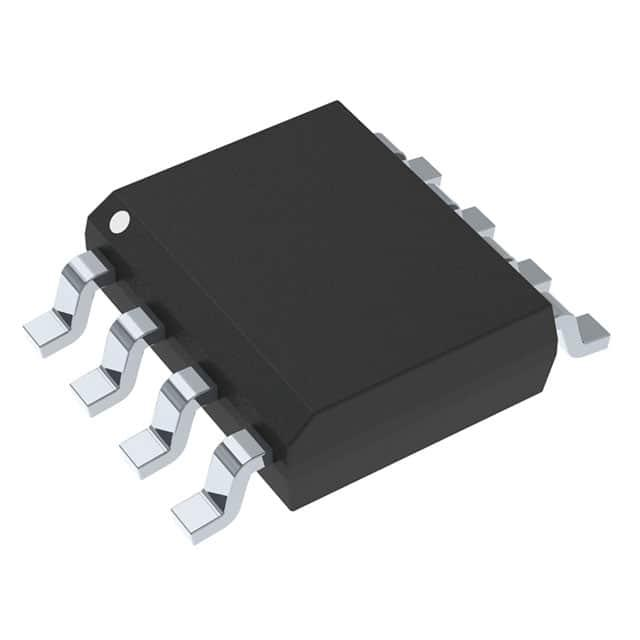How to choose an integrated circuit distributor?
Integrated circuits (ICs) are fundamental components in modern electronics, incorporating various electronic elements to perform complex functions. Among the many components within ICs, integrated circuit distributors play a crucial role in managing signals, data, and power distribution within the circuit. Choosing the right integrated circuit distributor is essential for ensuring optimal performance, reliability, and efficiency in electronic designs. In this comprehensive guide, we will explore the key factors to consider when selecting an integrated circuit distributor, helping you make informed decisions that align with your specific application needs.
Types of Integrated Circuit Distributors
The first step in choosing the right integrated circuit distributor is understanding the different types available. Integrated circuit distributors come in various forms, each designed to handle specific functions within an electronic system. Common types include:Data Distributors: These are used to route data signals from a single source to multiple destinations. Data distributors are essential in applications where information needs to be distributed across different parts of a circuit or system.
Signal Distributors: Signal distributors are used to manage and direct various signals, such as analog or digital signals, within a circuit. These distributors are crucial in communication systems, audio equipment, and other applications where signal integrity is vital.
Power Distributors: These distributors manage the distribution of power within a circuit, ensuring that different components receive the appropriate voltage and current levels. Power distributors are critical in power management systems, ensuring stable and efficient operation.
When selecting an integrated circuit distributor, it is important to match the type of distributor to the specific requirements of your application. For example, if your project involves distributing a single signal to multiple outputs, a signal distributor may be the ideal choice, whereas a data distributor would be more suitable for routing data signals.
Number of Inputs and Outputs
Another critical factor to consider when selecting an integrated circuit distributor is the number of inputs and outputs it supports. The number of inputs and outputs required will depend on the complexity of your circuit and the specific application needs. For instance:Single Input, Multiple Outputs: In scenarios where a single input signal needs to be distributed to multiple outputs, you will need a distributor with multiple output ports. This is common in audio and video distribution systems.Multiple Inputs, Single Output: If your application requires selecting one signal from multiple inputs and directing it to a single output, you might need a multiplexer or a data selector.
Multiple Inputs, Multiple Outputs: Complex systems that require routing multiple signals to different destinations will need distributors with multiple input and output ports.
Selecting the right distributor with the appropriate number of inputs and outputs ensures that your circuit can handle the necessary signal routing efficiently, without compromising performance or adding unnecessary complexity.
Control Methods
The control method of the integrated circuit distributor is another important consideration. Different distributors may require different control signals or methods to operate correctly. Understanding how these control methods align with your application is crucial for seamless integration. Common control methods include:Manual Control: Some distributors allow for manual control, where the user can physically switch or route signals. This method is simple but may not be suitable for automated or high-speed applications.
Automatic Control: Many integrated circuit distributors use automatic control methods, such as logic gates or microcontrollers, to manage signal routing. This method is ideal for applications that require precise and rapid signal distribution.
External Control Signals: Certain distributors require external control signals, such as clock signals or enable signals, to function. Ensuring compatibility with your circuit’s control signals is essential for proper operation.
Choosing a distributor with the right control method for your application ensures that it can operate efficiently within your system, whether you need manual, automatic, or externally controlled distribution.
Specific Application Requirements
Different applications impose specific requirements on the integrated circuit distributors used. When selecting a distributor, it is essential to consider the unique demands of your application, such as:High-Speed Data Transmission: For applications that require high-speed data transmission, such as networking or telecommunications, selecting a distributor with low latency and high bandwidth capabilities is critical.
Low Power Consumption: In battery-operated or energy-efficient designs, it is important to choose distributors that offer low power consumption to extend battery life and reduce energy costs.
Miniaturization: In compact or portable devices, space is often limited. Selecting a distributor with a small form factor that can fit within the constraints of your design is essential.
Environmental Considerations: For applications in harsh environments, such as automotive or industrial systems, selecting distributors that can withstand extreme temperatures, humidity, or vibration is crucial for ensuring long-term reliability.
By carefully considering these specific application requirements, you can select an integrated circuit distributor that not only meets your performance needs but also ensures durability and efficiency in your design.
Market Research and Trends
When selecting integrated circuit distributors, staying informed about market trends and developments is crucial. The electronics industry is constantly evolving, with new technologies and components being introduced regularly. Conducting thorough market research allows you to:Identify Emerging Technologies: Understanding new technologies in integrated circuit distribution can give you a competitive edge, enabling you to incorporate the latest advancements into your designs.
Evaluate Supplier Offerings: Keeping track of the latest offerings from suppliers allows you to select distributors that align with your specific needs, ensuring that you are not using outdated or suboptimal components.
Understand Market Demands: By analyzing market demands, you can better anticipate the needs of your customers and design products that meet or exceed their expectations.
Incorporating the latest market insights into your selection process helps ensure that you are choosing integrated circuit distributors that are future-proof and capable of supporting the next generation of electronic devices.
Quality and Compatibility Considerations
Quality and compatibility are paramount when selecting integrated circuit distributors. Ensuring that the distributor is compatible with other components in your design is essential for achieving optimal performance and avoiding potential issues. Key considerations include:Material Quality: High-quality materials ensure that the distributor can operate reliably over time, especially in demanding applications. Poor-quality materials may lead to signal degradation, reduced lifespan, or failure under stress.
Interface Compatibility: The distributor must be compatible with the interfaces and connectors used in your circuit. Ensuring that the distributor can easily integrate with other components reduces the risk of compatibility issues.
Testing and Certification: Distributors that have undergone rigorous testing and certification are more likely to perform reliably in real-world applications. Look for certifications that indicate compliance with industry standards and regulations.
By prioritizing quality and compatibility, you can select integrated circuit distributors that contribute to the overall success of your electronic designs, ensuring long-term reliability and customer satisfaction.
Supplier Selection and Support
Choosing the right supplier for your integrated circuit distributors is just as important as selecting the right components. A reputable supplier can provide valuable support and resources that enhance your design process. When evaluating suppliers, consider the following:Product Range: A supplier with a diverse product range offers more options, allowing you to find distributors that perfectly match your requirements.
Technical Support: Access to technical support is invaluable, especially when dealing with complex designs. A supplier that offers expert guidance can help you overcome challenges and optimize your design.
Delivery and Availability: Timely delivery and product availability are crucial for maintaining your production schedule. Choose a supplier with a proven track record of reliability in fulfilling orders.
Reputation and Reviews: Research the reputation of the supplier within the industry. Positive reviews and testimonials from other customers can provide insight into the supplier’s reliability and quality of service.
Conclusion: Making an Informed Choice
Selecting the right integrated circuit distributor is a critical step in ensuring the success of your electronic designs. By considering factors such as distributor type, input/output requirements, control methods, application-specific needs, market trends, quality, and supplier support, you can make informed decisions that align with your project goals.
For businesses looking to source high-quality integrated circuit distributors, unikeyic Electronics is a trusted partner. With an extensive inventory of electronic components, expert technical support, and a commitment to customer satisfaction, Unikeyic Electronics offers the resources and expertise needed to help you choose the best distributors for your applications. Whether you are working on cutting-edge technology or optimizing existing designs, Unikeyic Electronics provides the tools and support you need to succeed in a competitive market.






















